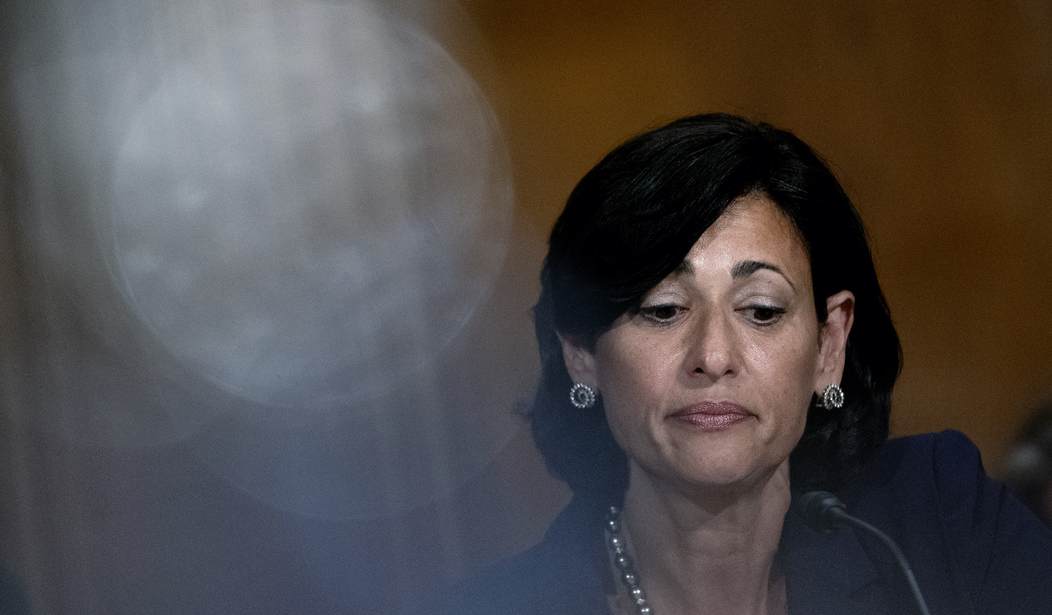When the CDC first announced the new mask guidance for vaccinated people last month, it was working off of the now famous study of the Provincetown July 4 outbreak plus a study from India that suggested the vaccinated could transmit Delta as easily as the unvaccinated could due to similar viral loads after infection.
But the Provincetown study has been attacked as unrepresentative of typical social interactions since it was a party scene, with lots of crowding, and the Indian study was revised after the fact in a way that undermined its core conclusion. Apparently viral loads in the vaccinated weren’t as high as they were in the unvaxxed. Another study from the UK confirmed that finding.
This weekend Dutch researchers put out some data of their own harvested from 161 vaccinated health-care workers who suffered breakthrough infections. Their results jibe with the UK study. It confirms that being vaccinated does benefit you if you’re infected, and not just by keeping you out of the hospital. According to this paper, the vaxxed had less infectious virus in their noses and throats than the unvaxxed did even when they had similar viral loads. The not so good news is that the vaxxed still had some infectious virus in them, which vindicates the CDC’s hunch that drove the change in masking guidance. There really is reason to believe that the vaccinated are able to infect others, if not as able as the unvaccinated are.

Follow the X-axis and you’ll see that even when the viral load was the same between a vaccinated and unvaccinated person, the unvaxxed turned out to have more infectious virus when samples were analyzed in a lab. Two big caveats for this study, though. One is that, because they were studying health-care workers, nearly everyone in the sample was under 50. It’s unclear if older vaccinated people would also have less infectious virus in their nasal passages on average. The other has to do with the fact that it was hard for them to find a sample of unvaccinated medical personnel in the Netherlands since nearly all of them there are vaxxed. The “unvaccinated” sample was based on workers who got infected before they were vaccinated, which means the study compared two groups at different points of time, who may have been confronting different variants during their respective testing periods.
Bottom line: “Despite similar [viral loads], we demonstrate lower probability of infectious virus detection in respiratory samples of vaccinated HCWs with breakthrough infections compared to unvaccinated HCWs with primary SARS-CoV-2 infections. Nevertheless, infectious virus was found in 68.6% of breakthrough infections and [viral loads increased] throughout the first 3 days of illness.” In other words, more than two-thirds of the vaccinated who got infected and experienced symptoms were contagious, at least in theory.
So, mask up! If you have a quality mask, I mean. If you don’t, you’re not accomplishing much of anything according to another new study:
Canadian mannequin study finds mask filtration efficiencies of:
Cloth: 10%
Blue disposable: 12%
Fitted KN95: 46%
Fitted R95: 60%
KN95 with 3mm gaps: 3%Even modest ventilation (2 air changes per hour) outperforms best mask.https://t.co/2GqCW50oyC
— Phil Kerpen (@kerpen) August 22, 2021
The next stage in studies about vaccination and masking will have to do with booster shots. We know from the Dutch and UK research that those vaccinated with two shots appear to carry enough virus from Delta to get others sick after they’re infected. But what about after three shots? Do the vaxxed enjoy sterilizing immunity at that point, in which case they can safely unmask again, or is it face diapers unto eternity? New numbers from Israel about the effect from boosters are encouraging — maybe not so encouraging as to make masks obsolete but encouraging inasmuch as a lot of vaccinated people who get boosted are likely to avoid sickness this winter.
Breaking down statistics from Israel’s Gertner Institute and KI Institute, ministry officials said that among people aged 60 and over, the protection against infection provided from 10 days after a third dose was four times higher than after two doses.
A third jab for over 60-year-olds offered five to six times greater protection after 10 days with regard to serious illness and hospitalisation.
The great mystery for the vaccinated at this stage of the pandemic is what their odds are of getting a nasty — but not emergency — case of COVID. The CDC is tracking only “severe” breakthrough infections, the sort that’ll land you in the ER. The vaccinated are much more likely to be spared that fate than the unvaccinated are but it’s anyone’s guess how many are being laid up in bed for a week or two with the worst illness they’ve ever had that didn’t require hospital care. Scientists are trying to answer that question but the current studies are a jumble of different cohorts: “Variables including when the surveys were conducted, whether the delta variant was present, how much of the population was vaccinated and even what the weather was like at the time make it hard to compare results and suss out patterns. It’s difficult to know which data might ultimately carry more heft.”
For most who’ve had their two shots, the conclusion will be “There’s some meaningful risk of a miserable but non-fatal experience so why not hedge against it with shot number three?”
I’ll leave you with this harrowing clip of just how strained some hospitals in Texas are at the moment from the crush of mostly unvaccinated COVID patients they’re trying to cope with. “Are there patients dying because of this that might not have died? Absolutely, yes,” says one health-care CEO. And he doesn’t just mean COVID patients. We’re all going to end up paying for the unvaccinated’s refusal to get jabbed. In more ways than one.








Join the conversation as a VIP Member